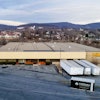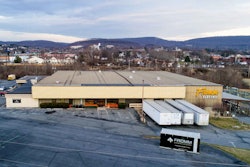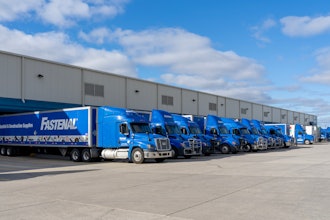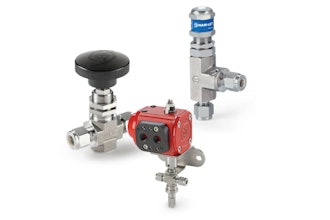How distributors can add analysis as a service to improve bearing lifespan.
Substitutions are often necessary on plant floors. Swapping out a hex nut for a square nut in a pinch is usually no big deal, but the same cannot be said of swapping out bearings. Bearings demand attention and accuracy. Luckily, the more technologically advanced the industry becomes, the better the solutions are and the more accurate manufacturers – and distributors – can be.
What’s Your Specialty?
In almost every industrial segment today, companies are consolidating and streamlining their product offerings and operations in the pursuit of efficiency and cost savings. The bearings segment is no exception.
“Major manufacturers and distributors have consolidated to take advantage of economies of scale,” says Tom Koetje, a Marketing & Business Development officer at National Precision Bearing. “However, many end users and customers are specializing, innovating, requiring smaller runs of specialty parts, and expecting customized service.” This contrast is creating unique opportunities for distributors to become a very valuable partner in the supply chain, either in carrying special product lines or by offering customizable services to the end user.
Reid Jajko, General Manager of NSK Americas Aftermarket Business Unit, stresses that the bearings segment is no longer just about quality. “Most Tier 1 bearing companies share very high quality standards, so when a distributor is looking for a product line, it all comes down to the support and engineering analysis available to them, and their ability to identify the true root cause of the problem,” he says. “The good manufacturers help reduce consumption and help the end-user improve up time.” In working with these manufacturers, distributors can harness that knowledge and analysis capabilities for their customers as well.
These service offerings can include lubrication services or predictive maintenance analysis for customers. “Bearing manufacturers are often unable to take product back for relubrication, or are unwilling to put a special grease or oil in a small number of parts,” says Koetje. “Bearing distributors like National Precision Bearing can create a solution for customers with special application needs, and create an opportunity to add value.”
“Maintenance is a big value-added opportunity for distributors,” notes Jeff Diaz, Industrial Product Manager at QA1. Offering analysis and creating customized maintenance schedules for customers is one way for a distributor to differentiate themselves in the changing marketplace, regardless of the part or product, but especially in a category as integral as bearings.
The Human Element
In a marketplace that is becoming more and more automated, distributors need to remember to bring the human element to all that they do. That is the key to providing excellent service and gaining, and keeping, long-term customers.
NSK’s Jajko notes that one of their strongest value propositions is their resident experts. These experts work across segments and with a myriad of companies and are exposed to a variety of different issues that can arise on the plant floor. Because of this, resident experts can properly identify issues that the end-user may not be aware of. “We are able to take the experience and knowledge base that we have and apply it across many different applications,” Jajko says. This allows them to offer a holistic, value-added approach to solving problems for the end-user — it is more than just offering a bearing in a box.
“Providing a whole solution. That is the human element,” says Jajko. “Completing an analysis and working directly with the distributor to develop proactive solutions not only affords the manufacturer the ability to increase their uptime, but also optimize inventory management — having the right inventory at the right time. This allows for better planning and better operation of the whole supply chain.”
The better the supply chain functions, the more everyone involved benefits. The better distributors can help their customers forecast and plan bearing usage, the more effectively they can forecast their own needs and carrying costs. With overall reliability programs in place, distributors can better serve the customer, and can better prepare for emergency situations.
Working with manufacturers that provide shorter lead times is another factor when choosing a product line to carry, notes Koetje.
“The best product in the world is no good if it isn’t in stock,” emphasizes QA1’s Diaz.























